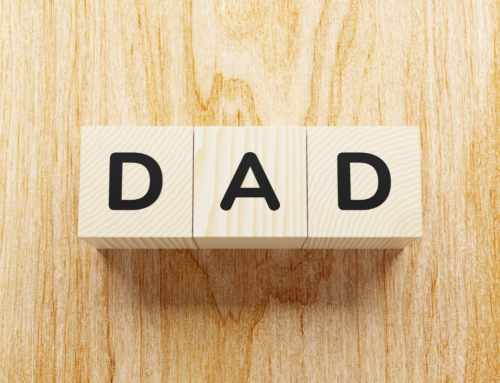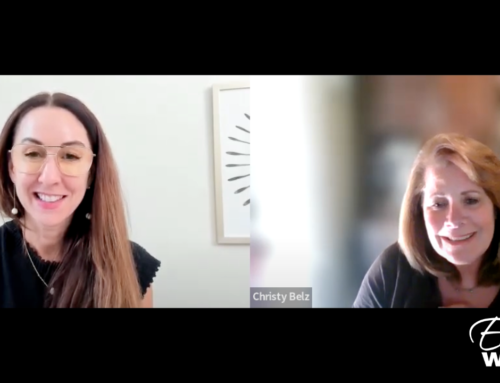“The oak fought the wind and was broken, the willow bent when it must and survived.”
― Robert Jordan, The Fires of Heaven
Are you fighting the wind of COVID-19 or are you able to bend like the willow tree? Does it feel like fight or flight one day and go-with-the-flow next? Personally, I am certainly riding the rollercoaster of the ebb and flow. Some days I feel fine and move with the rhythm of my life. Others, I get totally freaked out about what is happening and what the future holds for us all. If you’re struggling to stay present and stay in the flow of life, I encourage you to read my last blog, Living In The Present: How To Navigate Tough Times With More Ease.

Understanding Resilience
The ability to bounce back, even if it is on a day-by-day basis, is called resilience. In a Positive Psychology article, Resilience Theory: What Research Articles in Psychology Teach Us, psychologist and author Catherine Moore offers the following definitions of resilience:
– “…the ability to bounce back from adversity, frustration, and misfortune…” (Ledesma, 2014: 1)
– “the developable capacity to rebound or bounce back from adversity, conflict, and failure or even positive events, progress, and increased responsibility” (Luthans, 2002a: 702)
– “…a stable trajectory of healthy functioning after a highly adverse event” (Bonanno et al., 2004; Bonanno et al., 2011)
– “…the capacity of a dynamic system to adapt successfully” (Masten, 2014; Southwick, 2014)
Stress And Psychological Resilience
Psychological resilience allows us to mentally or emotionally cope with a crisis or to return to pre-crisis status quickly. Resilience exists when a person uses mental thought processes and positive behaviors that promote personal resources and protect self from the potential negative effects of stressors. In simpler terms, psychological resilience exists in people who develop psychological and behavioral capabilities that allow them to remain calm during crisis/chaos and to move on from the incident(s) without long-term negative consequences.
In the midst of COVID-19, an unprecedented time in our history, we are all dealing with crisis, chaos and traumas, both small and large.
According to a Genesis Medical Scheme article, Top Ten life-event stressors in the 21st century, here is what they listed as the main stressors that can cause anxiety, irritability, depression, headaches, insomnia (any of these feel familiar to you, too?) and other significant physical and psychological symptoms.
- Death of a spouse
- Divorce
- Marriage
- Imprisonment
- Death of a close family member
- Injury or illness
- Marriage
- Job loss
- Marriage reconciliation
- Retirement
Nowhere does this research mention a global pandemic, racial unrest and a divisiveness of our country, although due to COVID-19, many of us have experienced death, illness, job loss and perhaps even divorce.
What we are experiencing—all the uncertainty, fears, worries, feelings of isolation, etc—however, are indeed highly stressful, traumatic and challenging.
Increasing Resiliency: How To Bend And Not Break In These Unprecedented Times
In a Psychology Today article, 10 Ways Mentally Strong People Handle A Pandemic, author Tracy S. Hutchinson, Ph.D. discusses research on how the mentally strong behave through adverse experiences, which may help you reduce the likelihood of mental health issues resulting from COVID-19. According to the article, mentally strong and resilient people may eventually display post-traumatic growth versus post-traumatic stress symptoms. Post-traumatic growth is understood as positive psychological changes that result from traumatic and highly stressful experiences. Although we are in the middle of this crisis, individuals can rise to a higher level of functioning when the pandemic ends.
Author Jelena Kecmanovic of The Washington Post also offers some valuable tips to help us bend rather than break as news about the coronavirus pandemic grows grimmer. According to her article, A psychologist’s science-baced tips for emotional resilience during the coronavirus, the following can help:
-Accept negative emotions
-Create new routines
-Reinvent self-care
-Reflect, relate and reframe
There is a lot of good information in these articles, which I highly suggest reading. Taking good care of ourselves now is more vital than ever, and the insights and tips offered in these articles and others can help you navigate all this uncertainty with greater ease.
Using Acronyms As A Supportive Self-Exploration Practice
In a recent UPROOT retreat, I taught the power of using an acronym to uncover what may be below the surface of any issue. We used the acronym SURRENDER. It was mind blowing to see not one person use the same words for each letter of SURRENDER, as everyone had different interpretations of and meanings for the word. This is a great practice, and I encourage you to work with acronyms, including RESILIENT, to help uncover what may be below the surface for you.
Here are my suggestions for the word RESILIENT, which are designed to help you take care of yourself and bend rather than break during these unprecedented times.
R – Rest
E- Engage with others. Even with social distancing we all need to connect
S – Self-care
I – Trust your intuition
L – Limit the news
I – Intention: get clear about what you desire
E- Energy matters. We are all responsible for our own energy.
N – New: trust in the unfolding
C- Create
E – Expand
Bending Like The Willow Tree
Times are tough right now. There’s no doubt about that. And, it can be hard to bend like the willow tree when so many of us feel like we’re at a breaking point. Simple practices, however, like using the acronyms for self-exploration practice explained above can help you uncover what might be unconsciously just under the surface. Also, trust in yourself, your heart and your intuition. If that feels like a struggle for you, I encourage you to read through a blog I wrote a while back, Developing Resilience And Building Coherency: How To Tap Into Heart Intelligence During These Uncertain Times, which offers a very simple technique that you can use to help align your head and your heart.
I’m also here to help in any way I can. Please contact me if you’re in need of extra support during these uncertain times and/or if you’re interested in learning more about UPROOT, a 15-week program designed to help you powerfully partake in your life and cultivate greater purpose and fulfillment in relationships, work and leadership.
Here’s to cultivating greater resilience and bending rather than breaking during these challenging times.
Much love,
Christy




